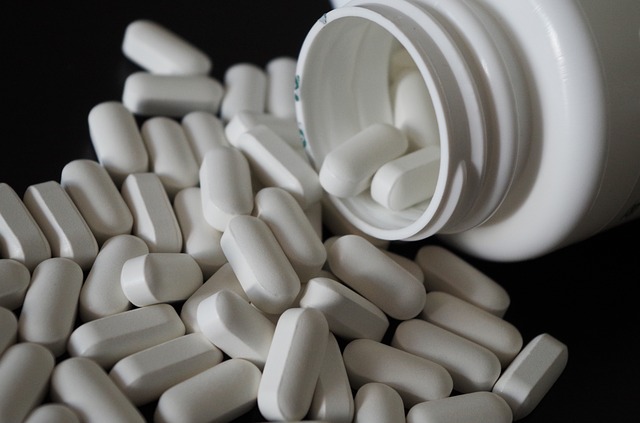It is necessary to take vitamins and minerals. If we want our hormones to function with full force, to increase the benefits of nutrition, sleeping and training for muscle growth or losing that excess body fat – vitamins and minerals are irreplaceable. Not to mention their overall effect on physical and mental health.
Many recommend them and each one of us knows they are necessary. But there are two key things being missed.
Hearsay Logic
Usually the logic follows as this:
 “Vitamin C is good for the immune system.
“Vitamin C is good for the immune system.
Apples contain vitamin C.
Apples are good for the immune system.”
What isn’t said here is how much vitamin C is needed in order to have a beneficial effect on the immune system.
The answer is: at least 1 gram of vitamin C daily.
In order to get 1 gram of vitamin C through apples, you need to eat 22 kilograms of apples. Along with the 225 grams sugar contained within.
In order to get 1 gram of vitamin C through lemons for example, you need to eat 1.8 kg lemons.
“Calcium is good for the bones.”
Milk contains calcium.
Milk allows for healthy bones.”
1) Amounts
Vitamin D is also good for the bones. But it doesn’t mean that our bones will be healthy if we eat something that contains calcium or vitamin D. What is not being said with such hearsay statements is far more important than the fact that you need to get vitamins and minerals: the amounts which you need to get + the ratio in which you need to get your vitamins and minerals.
How much calcium a day is needed for healthy bones? That’s the question.
And the answer is: at least 1 gram.
In order to get 1 gram of calcium through milk, you need to drink 1 liter of milk. Along with the 35 grams of sugar contained within.
The really necessary doses of most vitamins and minerals can’t be gotten just through regular nutrition. That’s why you need supplementation.
2) Vitamins and minerals ratio
Let’s not forget the ratio. If we say that calcium intake is healthy for a particular thins, for example bones or metabolism, we haven’t said nothing clever.
 Someone might take the advice and start getting 1 gram of calcium every day, without the other vitamins and minerals. Then other effects might appear. Increased calcium intake can cause magnesium deficiency in the body. The deficiency in magnesium can decrease the usefulness of vitamin D. Magnesium is needed to turn vitamin D in a form in which vitamin D helps calcium absorption. Lack of magnesium will cause lack of calcium absorption even though we might be getting it in larger amounts. Then it will cause deposition of calcium in the body instead of absorption. And so on with other undesirable effects and ailments. And weak bones.
Someone might take the advice and start getting 1 gram of calcium every day, without the other vitamins and minerals. Then other effects might appear. Increased calcium intake can cause magnesium deficiency in the body. The deficiency in magnesium can decrease the usefulness of vitamin D. Magnesium is needed to turn vitamin D in a form in which vitamin D helps calcium absorption. Lack of magnesium will cause lack of calcium absorption even though we might be getting it in larger amounts. Then it will cause deposition of calcium in the body instead of absorption. And so on with other undesirable effects and ailments. And weak bones.
Getting one vitamin or mineral in larger amount can cause deficiency in other vitamin or mineral.
The use of a vitamin or mineral is possible only through intake of all other vitamins and minerals.
Vitamins and minerals work together as a whole system.
The amount and ratio of vitamins and minerals you take is what primarily dictates their usefulness. Those amounts can’t be tiny doses.
Our recommendation for daily vitamins and minerals intake:
- Vitamin A – 10.000 IU* (=3 milligrams)
[dose contained in 41 eggs; 9.8 kg milk; 1.6 kg broccoli; 2.7 kg green peppers; 11 kg chicken meat; 100 gr spinach; 100 gr chicken livers; 50 gr pork livers] - Vitamin D – 1000 IU (=0,025 milligrams)
[dose contained in 4 kg cheese; 24 eggs] - Vitamin C – 1000 mg
[dose contained in 1.25 kg green peppers; 1 kg broccoli; 750 gr parsley; 1.8 oranges; 12.5 watermelon; 550 gooseberries] - Vitamin E – 800 IU (=670 milligrams)
[dose contained in 1.8 kg sunflower seeds; 1.3 kg sunflower oil; 13.6 kg peanuts; 2.6 kg almonds] - Vitamin B1 – 200 mg
[dose contained in 285 kg rice; 3300 eggs; 2000 kg green peppers; 1000 kg apples] - Vitamin B2 – 100 mg
[dose contained in 200 eggs; 4 kg chicken livers] - Vitamin B6 – 100 mg
- Vitamin B12 – 100 mg
- Pantothenic acid (Vitamin B5) – 100 mg
- Niacin (Vitamin B3) – 100 mg
- Biotin (Vitamin B7) – 100 mcg (100 micrograms = 0.1 milligram)
- Folic acid – 400 mcg (0.4 milligrams)
- Calcium – 1000 mg
[dose contained in 1 kg spinach; 830 gr milks; 2 kg broccoli; 5.8 kg peanuts; 40 eggs; 150 gr yellow cheese] - Iron – 16 mg
[dose contained in 2 kg rice; 590 gr spinach; 600 gr beef meat; 200 gr lentils; 180 gr chicken livers; 70 grams pork livers] - Iodine – 75 mcg
- Magnesium – 500 mg
[dose contained in 5 kg milk; 2 kg rice; 80 eggs; 1.4 kg lentils; 300 gr peanuts; 220 gr pistachios] - Zinc – 25 mg
[dose contained in 8 kg beef meat; 25 eggs; 750 gr peanuts] - Copper – 1500 mcg
- Manganese – 500 mcg
- Chromium – 200 mcg
- Potassium – 50 mg
* IU is a internationally agreed upon unit for amount (stands for International Unit). Commonly used for oily vitamins (A, D, E). IU depends upon the activity (effect) of the substance and that’s why for example 1 IU vitamin A is not the same as 1 IU vitamin D.
For example, why is said that almonds are good for the heart? Because they contain good fats and are E-vitamin rich. In order to make vitamin E useful for the heart, you need to get 670 milligrams a day at least. That is 2.6 kg almonds.
Thus vitamin and mineral supplementation is necessary.
We hope that now it’s clear how much deficient are people in general in vitamins and minerals.






